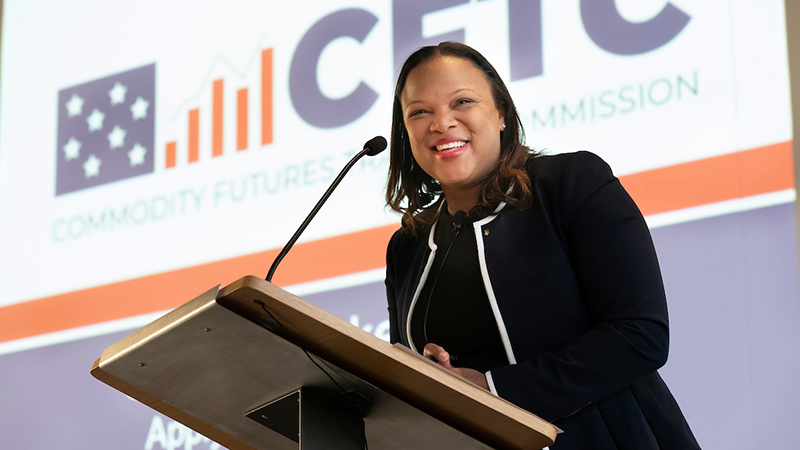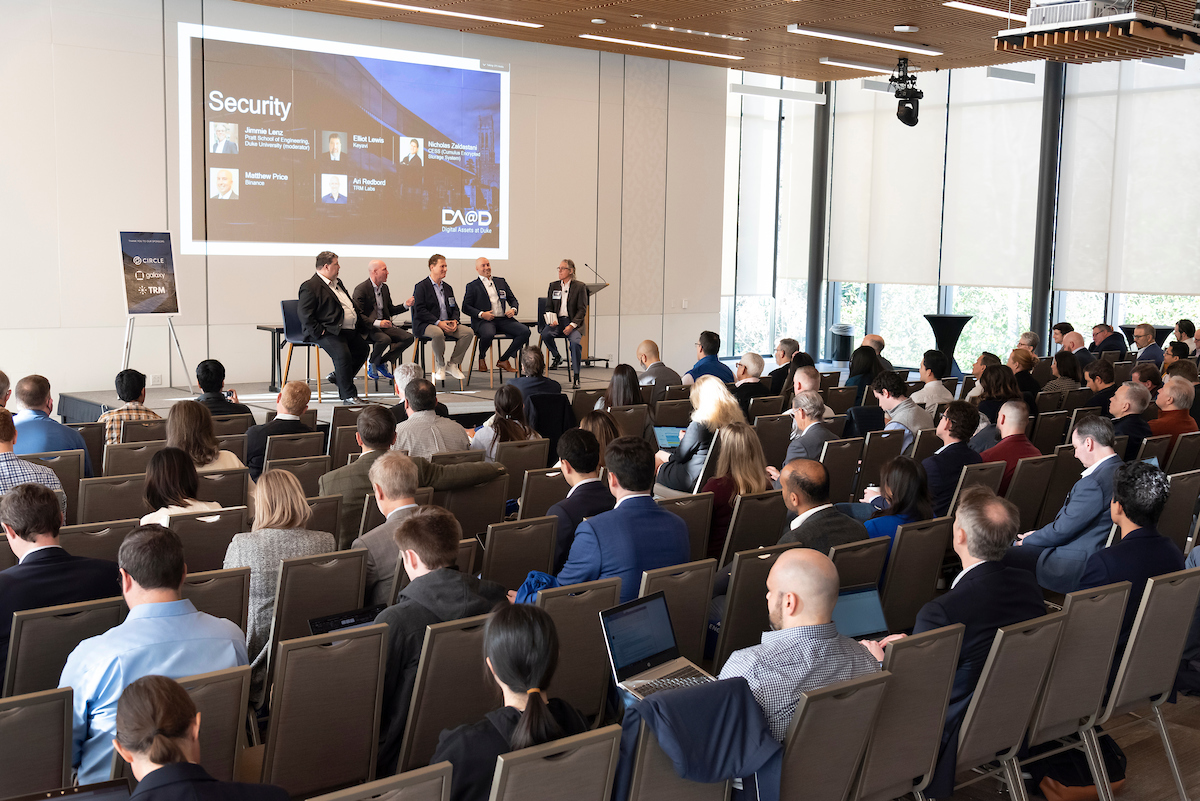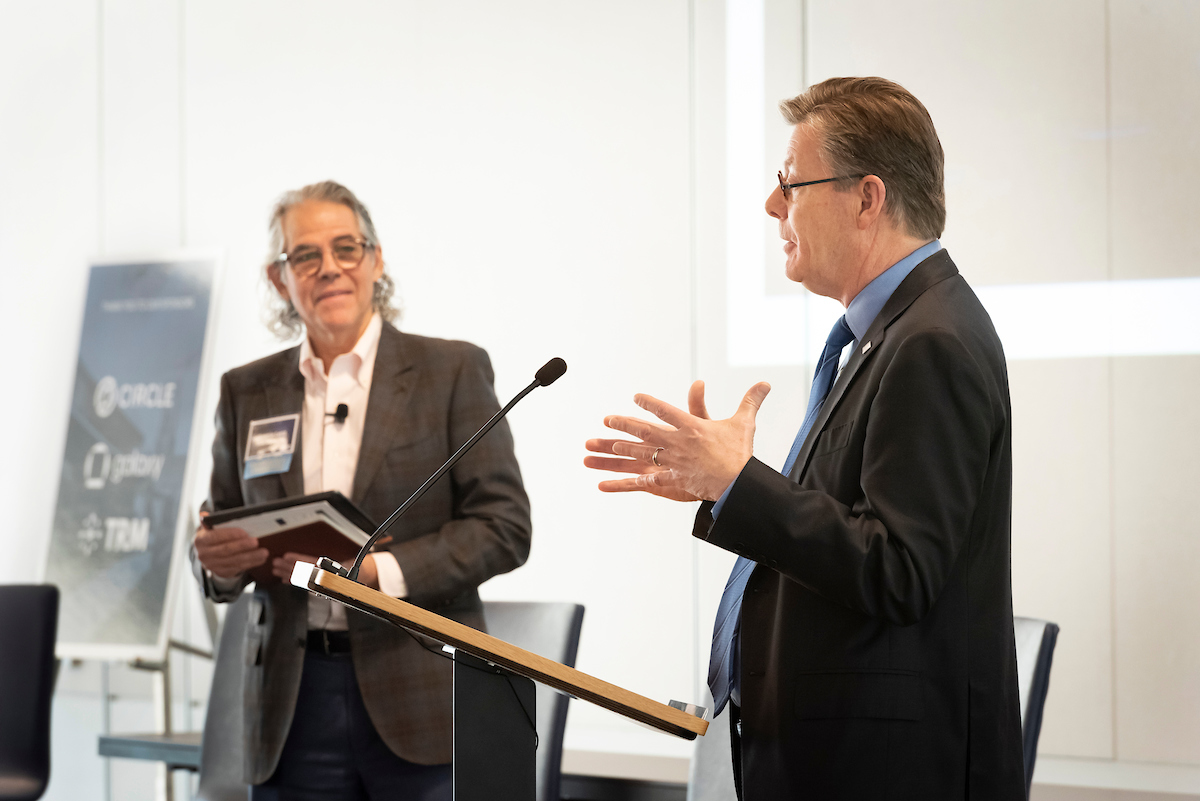Producing Something Unusual for a Digital Assets Conference: Meaningful Discussion
By Mark Schreiner
The first Digital Assets @ Duke conference was a first-of-its-kind gathering of engineers, financiers, investors and public policy experts

With the news often focused only on boom, bust and financial scandal, a unique conference held at Duke University on January 20-21 produced something unusual for a review of digital assets—deep, meaningful discussion.
About 200 experts in software engineering, finance and public policy gathered on Duke’s campus for “Digital Assets @ Duke,” a two-day exploration of digital assets—intangible constructions of cyberspace that are revolutionizing banks, businesses and markets in the physical world.
“Duke has a lot to offer society as it works through the opportunities, benefits and risks posed by digital-asset technology,” said Jerome P. Lynch, the Vinik Dean of Engineering at Duke. “Here, we have built a multidisciplinary community of scholars in engineering, law and public policy that are conducting research, educating undergraduate and graduate students in fintech, engaging with industry and government, and, with this conference, providing a forum for constructive interdisciplinary dialogue.”
The conference was sponsored by Duke’s Pratt School of Engineering, including its FinTech Master of Engineering degree program and Duke’s Financial Economics Center. The conference was funded with help of corporate sponsorship provided by Circle, Galaxy, and TRM Labs.
 DA@D featured intimate panels of experts, who led the discussions, with deep insights into issues surrounding digital security, regulation and the future of the technologies. But importantly, audience members were encouraged to actively participate by jumping in with questions. This created sustained dialogue.
DA@D featured intimate panels of experts, who led the discussions, with deep insights into issues surrounding digital security, regulation and the future of the technologies. But importantly, audience members were encouraged to actively participate by jumping in with questions. This created sustained dialogue.
“This was the best conference we have attended on the subject of digital assets,” said Katherine Molnar, chief investment officer of the Fairfax County (Va.) Police Officers Retirement System. “Many of the speakers corroborated our underlying thesis that blockchain technology is likely poised for high growth.”
The setting on Duke’s campus was “much preferable to the big crypto-focused conferences,” said Corey Then, a Duke Law graduate and vice president of global policy for Circle, a firm that is expanding the global use of digital currency for payments. “And I also found it useful that there were so many Duke faculty and students and others with technical backgrounds there.”
 A particular standout feature of the conference was that it brought investors, entrepreneurs, financiers and university experts together with federal officials. Discussions explored the sticky issues related to a desire on all sides for a clear regulatory framework in the United States for digital assets, cryptocurrencies and related technologies.
A particular standout feature of the conference was that it brought investors, entrepreneurs, financiers and university experts together with federal officials. Discussions explored the sticky issues related to a desire on all sides for a clear regulatory framework in the United States for digital assets, cryptocurrencies and related technologies.
Public policy speakers included U.S. Rep. Patrick McHenry of North Carolina, the chair of the U.S. House Financial Services Committee, Commissioner Hester Pierce of the U.S. Securities & Exchange Commission, and Commissioner Kristin Johnson of the U.S. Commodity Futures Trading Commission.
“The conference was a refreshing start to the new year,” said John Rolle, governor of the Central Bank of the Bahamas, who spoke during the conference. “We covered an interesting blend of topics, from discussions of digital security to sessions on regulation.”
Based on positive feedback and the need for continued constructive discussions about the technical, financial and public policy implications of these technologies, there are plans being considered to make the conference a regular event.
“We wanted to look past the hype and the fixation on prices,” said organizer Jimmie Lenz, director of the financial technology programs at Duke Engineering. “We intentionally designed this first-of-its-kind conference to encourage discussion from all sides. We achieved that and more, way beyond our optimistic expectations.”
